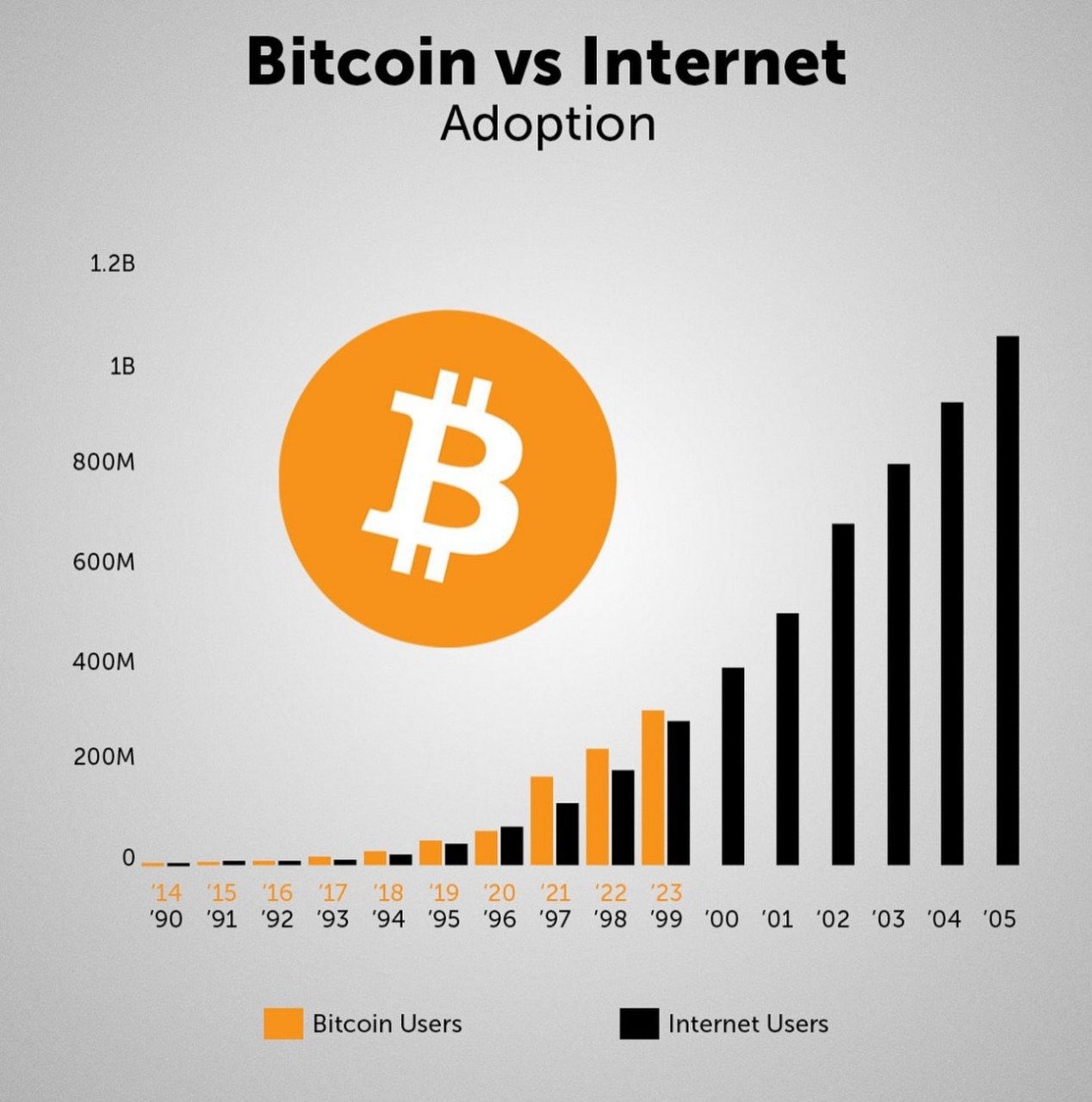
- Coinbase CEO Brian Armstrong says that Bitcoin adoption will hit billions of users by the end of the decade if it maintains the same adoption curve.
- Experts have revealed that crypto adoption is surging 43% faster than mobile phones and 20% faster than the internet, and recent events like Trump’s elections could turbocharge its rise.
Bitcoin will have billions of users by 2030, says Coinbase CEO Brian Armstrong, drawing on the comparison between the adoption curves of BTC, mobile phones, and the internet.
Data shows that Bitcoin has been beating the internet for the number of users in their first decade of usage, and if the pattern continues, BTC could hit billions of users over the next half-decade. With the Internet’s first year being 1990 and Bitcoin’s being 2014, the digital currency has competed favorably against the Internet, emerging victorious by a sizable margin over the past three years.

Source: Mario Nafwal
Commenting on the comparison, IBC Group founder Marion Nafwal noted:
Crypto has hit 300M users in just 12 years—43% faster than mobile phones and 20% faster than the internet, per BlackRock. Younger generations, inflation fears, and Trump’s pro-crypto stance are fueling the surge.
Armstrong concurred, and while he noted that the caveat is which year the data chooses to use as the first for either Bitcoin or the internet, he believes that “Bitcoin adoption should get to several billion people by 2030 at current rates.”
It really depends what you count as the official start year – for Bitcoin, Internet, and mobile phones – to make this comparison. But regardless, this is directionally correct.
Bitcoin adoption should get to several billion people by 2030 at current rates. https://t.co/JEU8P7YmLP
— Brian Armstrong (@brian_armstrong) February 10, 2025
Bitcoin’s Epic Rise: Can it Hit Billions of Users?
It’s not the first time Bitcoin has been compared to other era-defining inventions that have changed humanity. The internet is the most common; both are built on digitalizing traditional systems, have similar adoption curves, and were initially dismissed as fads.
In the ’90s, the internet was viewed as a mere digital repository with a limited scope. “The truth is, no online database will replace your daily newspaper, no CD-ROM can take the place of a competent teacher, and no computer network will change the way government works,” a now-infamous article in Newsweek in 1995 stated. Despite the naysayers, the internet now runs the world, being the foundation on which trillions of dollars have been built and invested.
Bitcoin was similarly dismissed as a fad in its early days. Some of the world’s most influential leaders have brushed the crypto aside, and they have all regretted their decision. JP Morgan’s Jamie Dimon called BTC a fraud, only for his banking conglomerate to turn around and start helping clients acquire it. Donald Trump called it a scam but is today the most bullish world leader on BTC potential. Warren Buffett infamously said he’d not offer $25 for “all the Bitcoin in the world,” but his investment behemoth now invests in crypto firms, and BTC is worth twice as much as Berkshire Hathaway.
Despite all the success, BTC is just getting started. The US just got its first pro-Bitcoin president; BTC ETFs are now only a year old and have infinitely higher potential; dozens of countries are exploring BTC reserves; inventions like Lightning Network are introducing BTC to payments, and so much more.
Bitcoin changes hands at $97,495 at press time, trading sideways in the past day despite a 66% rise in trading volume, which stood at $38 billion over the past day.






